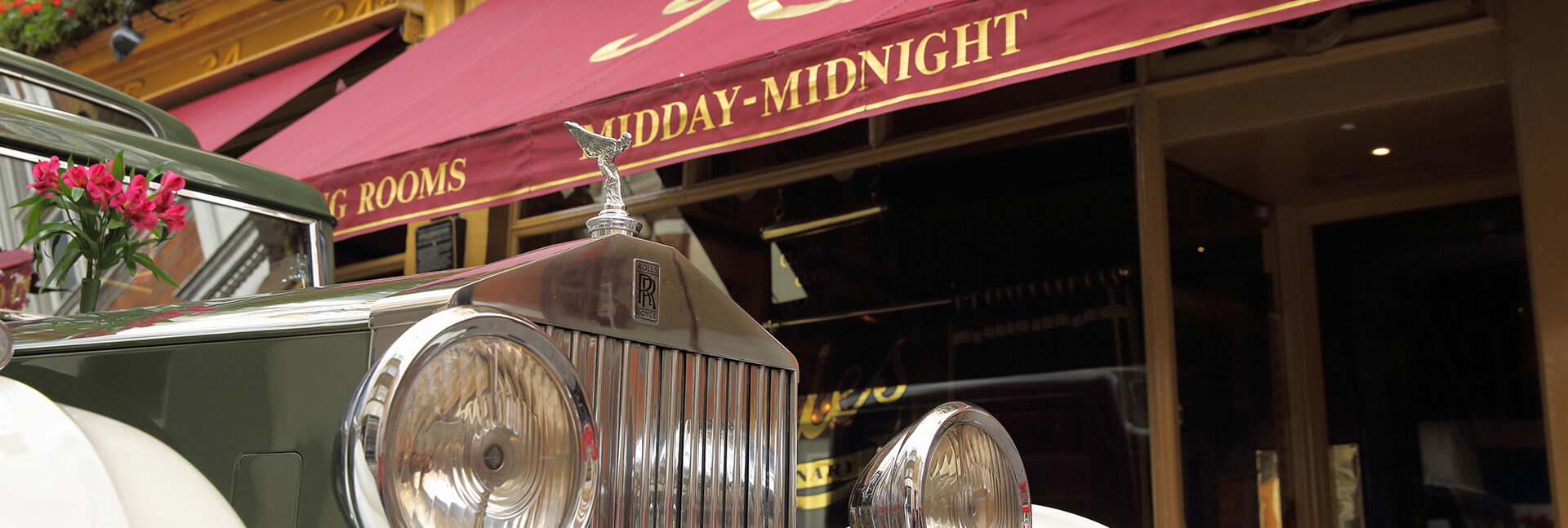“November 11, 1918. The war was over. Everyone wanted to forget what war was like and its sorrows it had brought. Everyone was determined not to be downhearted, not to worry about the state of the postwar world. The newspapers and illustrated weeklies were making a great to-do over Princess Mary’s forthcoming marriage to Lord Lascelles. His Royal Highness the Prince of Wales, was the leader of the young set in London which had by now opened its doors to me. P.W, as his intimates referred to him, had fulfilled all the promise I had found in those early photographs of him which I used to pin up beside my mirror. He was debonair, amusing, charming. He and his favourite younger brother, the Duke of Kent, went about in London’s night life, enjoying themselves and spreading pleasure wherever they went.
My dressing room at the Vaudeville Theatre had two entrances-one from the passage leading to the stage; the other, an emergency exit, which opened directly from the alley. Many evenings the Prince of Wales and the Duke of Kent would come up the alley, and old George, the doorman would let them in. I’ll never forget dashing into my dressing room one night between scenes to find the Duke of Kent seated before my mirror, trying on a wig of long, false curls. I had been presented to the Prince of Wales by Captain Philip Astley. Philip was in the Household Cavalry, born at Chequers, the official country home of British Prime Ministers, educated at Eton and the Royal Military College, added to which he was extremely goodlooking and had tremendous charm.
Some nights after the play Philip would come and fetch me and we would join a private party at Rule’s, the famous little restaurant in Maiden Lane, which plays such an interesting part in the theatrical history of London. The walls of Rule’s are lined with signed photographs of actors and actresses, boxing champions, cabinet ministers, and racing figures, and the furnishings were still the same red-plush, gilt chairs, china-globed chandeliers, and marble busts of Shakespeare and Sir Beerbohm Tree. The waiters were like “family retainers”. They had served generations of British men of note. The place was just the same as when Edward VII, then Prince of Wales, had given supper parties to Lily Langtry in the private room upstairs. This was the room in which we had our parties, and our young Prince of Wales sat where his grandfather had sat, enjoying our gay chatter and the music, which came from the same old phonograph with its cylindrical records which stood on a marble pedestal in the corner.
The Summer of 1944….One of the first things I did when I reached London in the summer of 1944 was to walk through Maiden Lane to see if Rule’s was still standing. It was, and my heart bounded with joy that the Germans had not blasted that little bit of the past into dust and ashes. The place was closed and carefully shuttered. But the building was intact. It waited, as so many places in London seemed to wait, for England’s youth and laughter to come back. meanwhile, Rule’s kept guard over the memories of the many gay suppers we had had there.
Footnote: “From Catterick our E.N.S.A caravan took the road to the north with Glasgow as our ultimate destination, but when we arrived in Newcastle the first night, we found orders to drive back forty miles along the way we had come to put on a concert at Barnard Castle for the Tank Corps.

